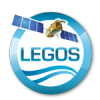
- Cet évènement est passé.
Gulf of Mexico ocean dynamics and its modulation by air-sea interactions
24 février 2023 @ 16h00 - 18h00
– Marco Larrañaga, doctorant, LEGOS –
Résumé :
At basin-scale, it has been recognized for several decades that interactions between the ocean and the atmosphere have a major influence on the Earth’s climate. However, persistent biases in global models, for example in sea surface temperature, have highlighted the limitations of a global approach at relatively low spatial resolution. This led to a new line of research based on a regional approach to ocean dynamics and ocean-atmosphere interactions. This thesis is part of this approach by focusing on the Gulf of Mexico (GoM).
The (GoM) is part of the western boundary current system of the North Atlantic. It represents a complex system where human activities, such as oil extraction and fishing, interact extensively with the ocean environment and biogeochemical ecosystems. The dynamics of the GoM are dominated by the emblematic Loop Current (LC), an intense anticyclonic current that brings warm Caribbean waters into the GoM. The LC episodically sheds warm core anticyclonic eddies that propagate westward: the Loop Current Eddies (LCEs). However, the GoM is facing increasing environmental problems such as oil spills and plastics. Knowledge of ocean dynamics is of utmost importance for understanding and monitoring these environmental problems and improving economic activities, such as shipping, fishing, or the development and exploitation of offshore structures for energy extraction.
The increase in spatial resolution in regional modeling allowed us to resolve the oceanic mesoscale activity O(100km), which has contributed to greatly improving the representation of the GoM dynamics. However, biases persist in our models, such as a LC that does not penetrate enough into the GoM and a too energetic mesoscale activity. The last two decades have been marked by the advent of new satellites and the development of coupled regional ocean-atmosphere models. It allowed the emergence of studies focusing on fine-scale interactions between the Ocean and the Atmosphere. Initially, the efforts of the scientific community were mainly focused on the thermal interaction between the ocean and the atmosphere. More recently, many studies have shown that ocean models, including the mechanical interaction between surface currents and the Atmosphere (the Current FeedBack, CFB), correct persistent biases in the representation of ocean dynamics by providing an energy sink from the Ocean to the Atmosphere. However, the effect of CFB on the dynamics of the GoM is poorly understood. The main goal of this thesis is to study its impact on the GoM dynamics with a particular focus on its impact on the characteristics of the LC and LCEs.
To do so, a double approach is proposed. It is based on the use of satellite data and coupled ocean-atmosphere eddy-rich twin simulations, with and without CFB, which were performed for the period 1993-2016 over the GoM. First, it is shown that CFB induces a transfer of momentum from mesoscale currents to the atmosphere, which leads to a reduction of the mesoscale activity (aka eddy killing in the literature), here, of about 20%. We also show the presence of an indirect effect of the CFB: by reducing the mesoscale activity, the CFB decreases the cross-scale interactions between eddies and mean currents, thus modulating the characteristics of the LC, the eddy-shedding, and the frontal jets present along the LC. Finally, via an analysis based on satellite observations over a 24–year period, we show that eddy detachments occurring north of 25N are more likely to lead to definitive separation, while detachments occurring south of 25N are more likely to reattach. Cyclonic eddies are also shown to play an important role in the final separation of LCEs. The CFB, by reducing the eddy energy, would thus have a determining role to play in this dynamic. I will conclude this thesis by discussing the interactions of waves with the Ocean and the Atmosphere, which are, until now, largely ignored in the literature.
Jury :
Julio Shienbaum – Reviewer (CICESE, Mexico)
Sébastien Masson – Reviewer (LOCEAN, France)
Matthieu Le Hénaff – Examiner (MU, United States)
Paula Pérez – Examiner (CICESE, Mexico)
Yves Morel – Examiner (LEGOS, France)
Julien Jouanno – Thesis supervisor (LEGOS, France)
Lionel Renault – Thesis co-supervisor (LEGOS, France)
Lien Zoom :
https://ird-fr.zoom.us/j/82652020518?pwd=YXlIdU5MQ0lKZjgrdGEvdDUraTg0dz09
